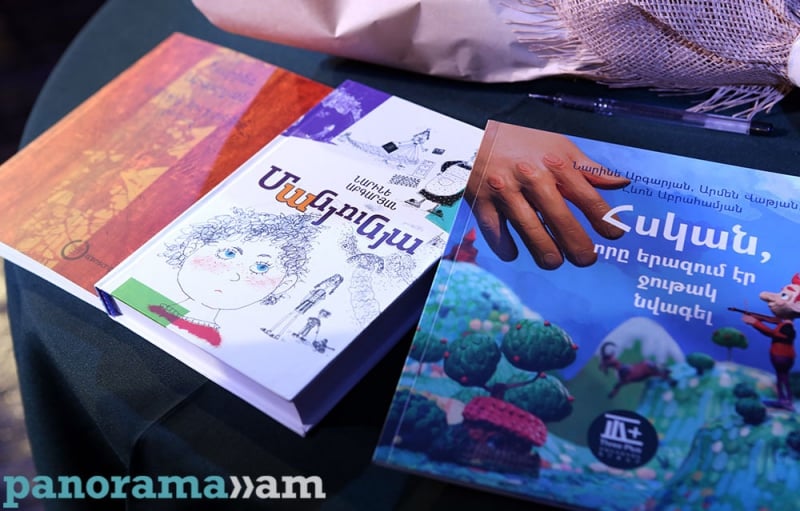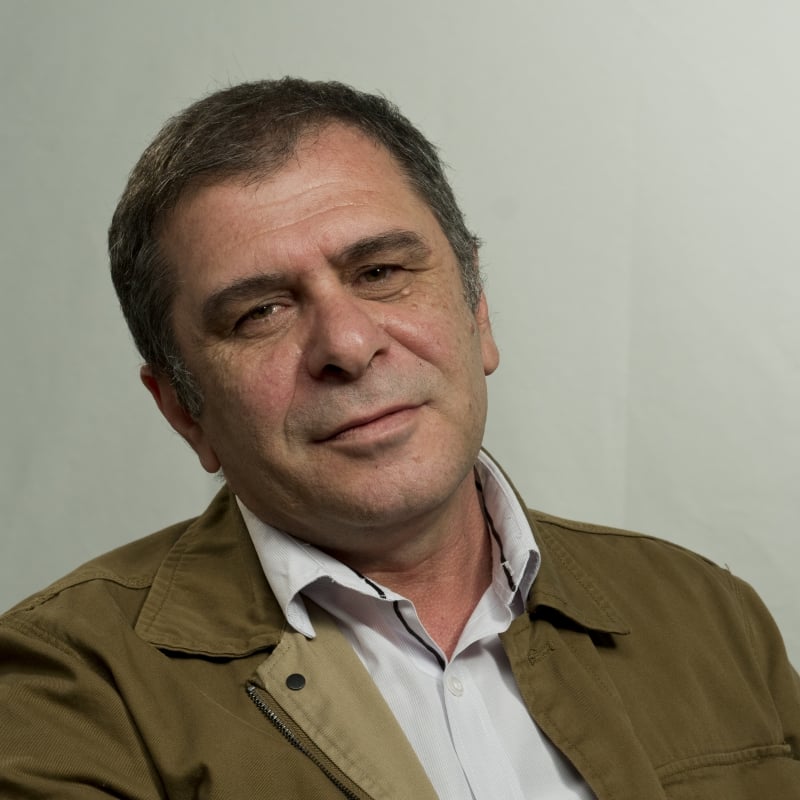
The reason for this article is Russia-based Armenian writer Narine Abgaryan’s interview with Tert.am, but I wouldn’t want for it to be perceived as a word against my fellow writer. The article is more so about the topics raised in the interview than against them.
Of course, it’s a cause for joy and pride that our compatriot receives deserved recognition in a country having highly valuable literary traditions and hundreds of thousands of writers. Even more joyful is the fact that Narine’s books are about us, her compatriots, and Armenia. And since her books are bestsellers, millions of people get acquainted with our country and its people, relate to its concerns and joys. In short, they get to know Armenia.
But even if this is the writer’s purpose and motivation for writing, nevertheless, it cannot become a literature issue. Despite all the mentioned merits, Narine Abgaryan does not create Armenian literature. Literature affiliation is not defined by the author’s ethnicity. Otherwise, there would be chaos in the world. It would turn out that a significant part of great Russian literature was Hebrew; the other part, Polish or Swedish.
Understandably, literature affiliation has no connection also to the author’s preferred topics. A book about Armenia is not yet Armenian literature. To which literature does Franz Wefel’s novel The Forty Days of Musa Dagh belong to? Never will anyone in their right mind think that this is Armenian literature, though it describes one of the most heroic stories from the cruel epoch in the history of the Armenian people. But never will anyone in their right mind claim, as well, that the novel is Jewish literature, considering Werfel’s ethnic background. The novel was written in German, so it is German or Austrian literature, which is essentially the same thing. Literature is the domain of language, its sign of expression and area of application. And so the national affiliation of literature, and out of all the arts only literature, is defined by language.
Asked which Armenian writers she likes, Abgaryan gives the names of three people, all of whom write exclusively in Russian. Unfortunately, they’re not Armenian writers, but writers of Armenian descent. Abgaryan is Armenian too, and judging from the interview, I would say a wonderful Armenian and a good person. She’s also a talented writer, judging from the response from readers, publishers, and literary scholars. She is Armenian, she’s a writer, but she’s not an Armenian writer. And there’s no mystery here. On the contrary, if a Russian, Yazidi, or Assyrian writes in Armenian, regardless of the topic, he is an Armenian writer.
Asked if she’ll ever write in Armenian, Abgaryan says: “I attempted to do so, but since my literary Armenian skills are so weak, since childhood I’ve spoken in a [different] dialect, unfortunately, I wasn’t able to write in Armenian. It was a very funny story when I told my editor how can it be that I’m Armenian, but I can’t write in Armenian, and she said, don’t worry, your Russian texts sound Armenian. And so, we decided that I write in Armenian.”
Yes, it’s funny — or solace for a sincere person who considers herself truly an Armenian but who cannot write in Armenian. Especially since the editor who didn’t know Armenian couldn’t understand whether the Russian text sounded Armenian or not. And, in general, written text in one language cannot sound like another language. The written word is not the spoken word, that you can guess the speaker’s ethnic origin from his accent.
Responding to another question, Abgaryan says: “It’s just now impossible to get somewhere writing only in Armenian. If you want to be heard, you have to write in English, Russian, or French. It’s a very cruel and unjust situation.”
This is accurate and true. Yes, it’s very hard, if not impossible, to get recognition and be heard writing in Armenian. But not only now. Nevertheless, it would be good if Armenian literature continued and with the pen of talented people. Since, let me repeat again, he who does not write in Armenian, what he creates is not Armenian literature. We shouldn’t fool ourselves. William Saroyan created typical American literature.
I too would like to be heard, get recognition and fame, but I want to write in Armenian more. I feel my writerly joy more when writing in Armenian than being heard. It’s the greatest enjoyment when you come up with a new Armenian formulation to your already written thoughts, find a new comparison, dig up a new synonym, and once again marvel in your language.
With all this, Abgaryan is right: it’s a very cruel and unjust situation. Since out of all the arts only literature is an expression of language, then it’s the only art that doesn’t have its own feet. Neither the symphony nor painting has crutches to walk around the world; that is, has the need for translation. Literature does. If we look closely at the list of authors who received Nobel Prizes in the last five decades, we’ll see that they wrote either in languages that are widespread worldwide (English, French, Spanish) or in a language with a small distribution but in a country that spends large sums on translation.
It is estimated that Turkey spends 500 million EUR annually to translate Turkish writers into major languages and to distribute their works. There is no European capital or major city where Turks don’t have one or two bookstores, where Turkish authors’ books are sold. Without all this, Orhan Pamuk wouldn’t have become heard and recognized in the world, and naturally, wouldn’t have received a Nobel Prize.
Scandinavian and Baltic states, and many other countries that have a small population and small language domain, are guided by if not the same volume of financial costs, then at least the same heartfelt concern and awareness. The day is not far that we, envious, will follow a Georgian writer’s climb to Nobel Prize levels.
And so, abandoning writing in Armenia is not the only way to achieve success in the international arena. Literature more than the other arts has the need for state support. It’s preferable but not mandatory that the state leaders understand literature. It would be enough for them to understand the role of literature.
Hovhannes Yeranyan
The views expressed in the column are those of the author's and do not necessarily reflect the views of Media.am.


Add new comment
Comments by Media.am readers become public after moderation. We urge our readers not to leave anonymous comments. It’s always nice to know with whom one is speaking.
We do not publish comments that contain profanities, non-normative lexicon, personal attacks or threats. We do not publish comments that spread hate.